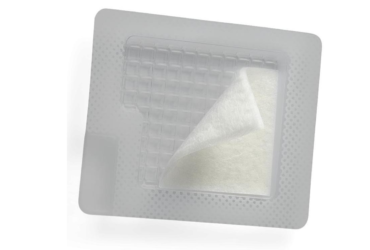
Most patients with chronic injuries will require some form of in-patient treatment in a long-term care facility during various stages of their wound recovery. However, in some cases, wound care treatments can be administered at home after making proper arrangements with patients and their home caregivers. This article highlights some strategies for managing chronic wounds in the home.
Does Home-Based Wound Care Work?
Home-based wound care strategies can be used to effectively manage various chronic wounds given the optimal conditions are provided. Patients with wound ulcerations of various aetiologies (venous, diabetic, or arterial diseases) can be managed at home with appropriate follow-up by a wound care physician. Provided the affected patients and their relatives or home caregivers adhere strictly to instructions from wound care physicians, and nurses, many chronic wounds can be effectively treated at home.
Benefits of Managing Chronic Wounds at Home
Home-based care provides patients who opt for this treatment alternative with the opportunity to receive their care in a more familiar and comfortable setting of their homes. Further, home-based treatment offers a higher level of privacy than treatment obtained at a long-term care facility.
10 Tips For Managing Chronic Wounds at Home
Although there are diverse approaches to chronic wound management and not all strategies and techniques are suitable for use outside a long-term care facility. Outlined below are ten effective ways patients can perform or receive adequate wound care for their chronic wounds from the comfort of their homes.
Ensure Local Wound Care
A critical component of home-based care for patients with chronic wounds is local wound care. Regular wound cleansing, debridement, and using appropriate wound dressings are mandatory. Patients or their home caregivers can be taught how to perform wound care or arrangements can be made to have wound care providers visit the patients’ homes and administer the procedures.
Prevent/Control Wound Site Infections
Licensed wound care experts should prescribe antibiotic and antifungal medications to help patients with chronic wounds limit or treat wound infections while managing their wounds at home. Topical or oral medications can be given after careful assessment of patient needs by their wound care physicians/nurses.
Maintain Adequate Wound Perfusion/Oxygenation
Every wound healing process requires an adequate supply of blood-borne nutrients and oxygens to achieve optimal tissue repair. Patients should be counseled to avoid the use of tight, occlusive wound dressings to permit optimal blood flow to the wound site. Breathable wound dressings will allow free flow of oxygen over the injury site resulting in improved wound healing.
Exudate Control
Patients and their home caregivers should be educated on the negative effects of copious wound exudate on the injury site and the periwound area. Home-based wound care should allow for the use of highly absorbent wound dressings to maintain wound exudate within optimal limits.
Use Appropriate and Adequate Analgesia
Chronic wounds are often associated with varying degrees of pain depending on individual patient pain thresholds. As a part of home-based wound therapy, patients should be prescribed appropriate and adequate analgesia to maximize comfort and encourage compliance with other home wound care measures.
Make Healthy Dietary Choices
Patients opting for home-based wound care for their chronic injuries should be counseled on making healthy dietary choices. Diets should include foods high in antioxidants, and vitamins. Healthier food choices are associated with faster rates of tissue recovery and wound resolution.
Alcohol Reduction and Quitting Smoking
Many chronic wounds have etiologies linked to excess alcohol consumption and tobacco use. As part of the home care strategies for patients with chronic injuries, wound care experts should counsel and encourage their patients to limit their alcohol intake and quit smoking. Various pharmacological aids (anti-craving medications) can be made available to help patients commit to better lifestyle choices.
Management of Co-morbid Medical Conditions
A significant number of patients with chronic wounds also have underlying medical conditions which are either a complicating or causative factor. Patients with diabetes, chronic hypertension, and chronic venous or peripheral arterial disease should receive appropriate medical treatments for these conditions in addition to other home-based wound care strategies.
Daily Exercises
Engaging in mild to moderate physical exercises daily will help to minimize oxidative damage as well as increase healing rates by boosting perfusion at wound sites. Some examples of exercises or workouts beneficial to wound healing include strength training, arm and leg lifts, and circuit training.
Perform Regular Self-Wound Assessment
Patients who choose to have their chronic wounds managed at home must be taught to perform simple wound assessments on their own and immediately report any abnormal findings to their expert wound care providers. Regular self-assessments will allow early interventions and also aid in close monitoring of the wound healing process. Telehealth platforms allow patients to speak to wound care professionals in real-time from the comfort of their homes. They can take images of their wounds and send them securely over encryption.

Tags





.jpg)

.jpg)
.jpg)

.jpg)








